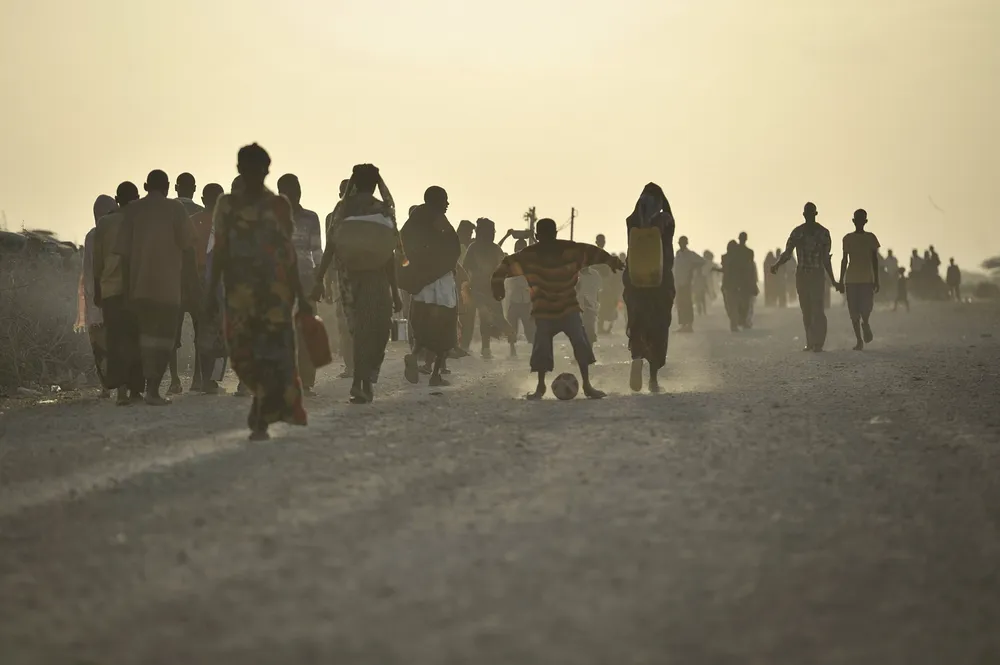Sudan is caught in the throes of a brutal conflict that has left thousands dead and millions displaced, with mounting evidence pointing toward targeted violence that many are calling genocide.
The current crisis traces back to decades of political instability, ethnic tension, and a devastating power struggle between rival military factions. The country has become a battleground, with civilians bearing the brunt of armed clashes and targeted ethnic cleansing.
The violence has deep roots in Sudan’s complex political history, but the immediate conflict erupted in April 2023, when tensions boiled over between the Sudanese Armed Forces (SAF) and the paramilitary Rapid Support Forces (RSF).
The SAF and RSF, once allies, are now embroiled in a deadly power struggle, leading to widespread attacks on civilians, particularly those in the Darfur region and marginalized ethnic communities. Reports of systematic rape, extrajudicial killings, and forced displacement have drawn comparisons to the atrocities committed in Darfur in the early 2000s.
Why Has the World Turned a Blind Eye?
Despite the severe scale of violence, Sudan’s crisis has not captured the world’s attention like other recent conflicts. European capitals, which have previously seen protests for Ukraine, Syria, and Palestine, remain largely silent on Sudan.
The reasons for this are complex, rooted in geopolitical priorities, media coverage biases, and fatigue from prolonged conflicts in Africa.
Western nations, focused on strategic interests in regions like the Middle East and Eastern Europe, may see less incentive to intervene in Sudan, a country without the same geopolitical weight.
This lack of attention has translated into sparse media coverage, leaving many unaware of the depth of suffering Sudanese civilians face.
Human Rights Organizations Sound the Alarm
Human rights organizations are raising urgent alarms. Groups like Amnesty International and Human Rights Watch have documented harrowing accounts from survivors and are calling the situation a genocide.
They point to the targeted killing of ethnic groups and widespread abuse of human rights. Despite these cries for attention, the international response has been limited.
These organizations are demanding concrete action, but their calls remain largely unheeded, overshadowed by global crises elsewhere.
Where is the United Nations?
The UN, with a mandate to prevent and address genocide, has so far been largely ineffective. Although it has condemned the violence and called for peace, its peacekeeping efforts have been hamstrung by a lack of consensus among member states. With limited resources and a tenuous foothold in Sudan, UN agencies struggle to deliver aid and protect civilians amid ongoing violence.
Critics argue that bureaucratic delays, political divisions, and an overall lack of resolve have rendered the UN’s response insufficient, raising questions about the organization’s ability to prevent mass atrocities.
The Urgent Call to Action
As Sudan faces a catastrophic humanitarian crisis, a global call to action is essential.
Governments, particularly those with influence in the UN, must press for stronger peacekeeping measures and ensure that aid reaches Sudan’s vulnerable populations. Humanitarian corridors, stricter sanctions against those committing atrocities, and support for civilian-led governance in Sudan are necessary steps to alleviate the crisis.
To truly honor the promise of “Never Again,” the world must not only condemn the violence in Sudan but actively work to end it. Governments, international bodies, and civil society alike have a moral responsibility to respond.
Sudan’s civilians cannot afford for the world to turn a blind eye any longer.
